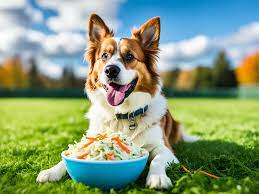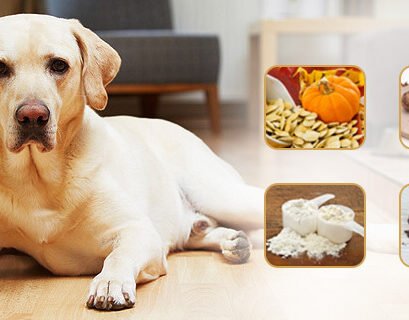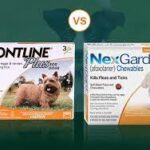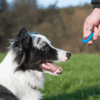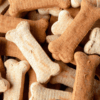Can Dogs Eat Coleslaw? The Truth About This Popular Salad
Coleslaw is a delicious salad that consists of shredded cabbage, carrots, and a creamy dressing. It is often served as a side dish or a topping for sandwiches and burgers. But can dogs eat coleslaw too? If you are a dog owner who loves to share your food with your furry friend, you might be tempted to give them a bite of your coleslaw. However, before you do that, you should know the truth about this popular salad and how it can affect your dog’s health.
What is Coleslaw and Why Do People Eat It?
Coleslaw is a type of salad that originated in Europe and became popular in America in the 18th century. The name comes from the Dutch word “koolsla”, which means “cabbage salad”. Coleslaw is made of shredded or chopped cabbage, carrots, and a dressing that can vary depending on the recipe. Some common ingredients in the dressing are mayonnaise, vinegar, sugar, salt, mustard, sour cream, yogurt, cheese, and herbs.
People eat coleslaw because it is tasty, crunchy, and refreshing. It can also provide some health benefits, such as fiber, vitamin C, vitamin K, and antioxidants from the cabbage and carrots. However, coleslaw can also be high in calories, fat, sugar, and sodium, depending on the amount and type of dressing used. Therefore, it is advisable to eat coleslaw in moderation and choose low-fat and low-sugar versions of the dressing.
What are the Ingredients of Coleslaw and How Do They Affect Dogs’ Health?
Coleslaw is not a simple salad. It has multiple ingredients that can be harmful or inappropriate for dogs. Let’s take a look at some of the common ingredients in coleslaw and their potential impacts on your dog’s health.
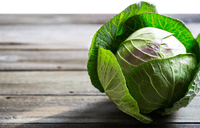
- Cabbage: Cabbage is a cruciferous vegetable that contains many nutrients and antioxidants. However, it also contains thiocyanate, a compound that can interfere with thyroid function in dogs. Too much cabbage can cause hypothyroidism, a condition that leads to low energy, weight gain, hair loss, and skin problems in dogs. Moreover, raw cabbage can cause gas and bloating in some dogs, which can be uncomfortable and painful.
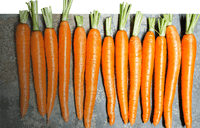
- Carrots: Carrots are a good source of vitamin A, fiber, and beta-carotene for dogs. They can also help clean your dog’s teeth and gums. However, carrots are also high in sugar and carbohydrates, which can contribute to obesity and diabetes in dogs. Too many carrots can also cause diarrhea and vomiting in dogs.

- Mayonnaise: Mayonnaise is the main ingredient in the dressing of coleslaw. It is made of oil, eggs, vinegar, and sometimes sugar and spices. Mayonnaise is high in fat and calories, which can lead to weight gain and pancreatitis in dogs. Pancreatitis is a serious condition that causes inflammation of the pancreas and can be fatal if not treated. Mayonnaise can also contain garlic and onion, which are toxic to dogs and can cause anemia and organ damage.
- Other ingredients: Depending on the recipe, coleslaw can also contain other ingredients, such as salt, sugar, vinegar, mustard, sour cream, yogurt, cheese, and herbs. These ingredients can add flavor and texture to the salad, but they can also cause problems for your dog. Salt and sugar can cause dehydration, kidney damage, and dental issues in dogs. Vinegar and mustard can irritate your dog’s stomach and throat. Sour cream, yogurt, cheese, and herbs can cause allergies, diarrhea, and vomiting in dogs.
The Risks of Feeding Coleslaw to Dogs
As you can see, coleslaw is not a good food option for dogs. It has multiple ingredients that are toxic or inappropriate for dogs, so it’s best to avoid it completely. Feeding coleslaw to your dog can cause the following risks:
- Toxicity: Some ingredients in coleslaw, such as onion, garlic, and mustard, can be toxic to dogs and cause damage to their red blood cells, liver, and kidneys. Symptoms of toxicity include weakness, lethargy, pale gums, vomiting, diarrhea, and collapse. If you suspect your dog has eaten something toxic, contact your vet immediately.

- Digestive issues: Coleslaw can also cause digestive issues in dogs, such as gas, bloating, indigestion, nausea, diarrhea, and vomiting. These issues can be mild or severe, depending on the amount and type of coleslaw your dog has eaten. They can also lead to dehydration and electrolyte imbalance in your dog, which can be dangerous. If your dog has digestive issues after eating coleslaw, make sure they have access to fresh water and monitor their condition. If the symptoms persist or worsen, consult your vet.

- Weight gain: Coleslaw is a high-calorie food that can contribute to weight gain and obesity in dogs. Obesity is a serious health problem that can increase the risk of diabetes, heart disease, arthritis, and cancer in dogs. It can also reduce your dog’s quality of life and lifespan. To prevent obesity, you should limit your dog’s calorie intake and provide them with regular exercise and activity.
- Allergies: Coleslaw can also cause allergies in dogs, especially if they are sensitive to dairy products, eggs, or herbs. Allergies can manifest as skin rashes, itching, swelling, hives, sneezing, coughing, or breathing difficulties. If your dog shows signs of an allergic reaction after eating coleslaw, stop feeding them the food and seek veterinary attention.
Healthy Vegetable Treats for Dogs
If you want to give your dog some vegetable treats, you should choose ones that are safe and beneficial for them. Some of the best vegetables for dogs include:
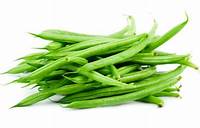
- Green beans: Green beans are low in calories and high in fiber, vitamin C, and manganese. They can help your dog feel full and support their immune system and bone health. You can give your dog fresh or frozen green beans, but avoid canned ones that contain salt and preservatives.
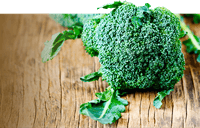
- Broccoli: Broccoli is a nutrient-dense vegetable that contains vitamin C, vitamin K, folate, and calcium. It can help your dog fight inflammation and infections and support their blood clotting and bone health. You can give your dog raw or cooked broccoli, but only in small amounts, as too much can cause gas and irritation.
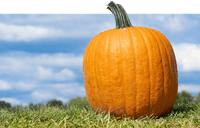
- Pumpkin: Pumpkin is a great source of fiber, vitamin A, and beta-carotene for dogs. It can help your dog with digestion, constipation, diarrhea, and eye health. You can give your dog canned or cooked pumpkin, but make sure it is pure and unsweetened. Avoid pumpkin pie filling, which contains sugar and spices that are bad for dogs.

- Sweet potato: Sweet potato is another good source of fiber, vitamin A, and beta-carotene for dogs. It can also help your dog with digestion, skin, and coat health. You can give your dog cooked or dehydrated sweet potato, but avoid raw or fried ones, as they can cause choking and pancreatitis.
When giving your dog vegetable treats, make sure to wash them well and cut them into bite-sized pieces. You can also steam or boil them to make them softer and easier to digest. Avoid adding any salt, sugar, butter, or seasonings to the vegetables, as they can be harmful to your dog. Also, remember to give your dog vegetables in moderation, as they are not a substitute for a balanced diet. Vegetables should only make up 10% of your dog’s daily calorie intake, and the rest should come from a high-quality dog food.
Conclusion: Can Dogs Eat Coleslaw?
Coleslaw is a tasty salad for humans, but not for dogs. It contains many ingredients that can be toxic, unhealthy, or inappropriate for dogs, such as onion, garlic, mayonnaise, salt, sugar, and vinegar. Feeding coleslaw to your dog can cause toxicity, digestive issues, weight gain, and allergies, which can harm your dog’s health and well-being. Therefore, it is best to avoid giving coleslaw to your dog and stick to dog-friendly vegetable treats instead. Your dog will thank you for it.
FAQS
Q: Can a dog eat cabbage?
Q: Can dogs eat mayo?
Q: Can dogs eat potato salad?
Q: Can dogs eat corn?
Yes, dogs can eat corn in moderation, as long as it is off the cob and cooked or processed for better digestibility. Corn can be a good source of protein, carbohydrates, linoleic acid, and antioxidants for dogs. However, corn can also be high in calories and carbs, which can contribute to obesity and diabetes in dogs. Corn can also be hard to digest and cause allergies in some dogs. Therefore, corn should not make up a large portion of your dog’s diet and should be given as an occasional treat.
Q: What is coleslaw and why do people eat it?
Coleslaw is a salad that consists of shredded cabbage, carrots, and a creamy dressing. It is often served as a side dish or a topping for sandwiches and burgers. People eat coleslaw because it is tasty, crunchy, and refreshing.
Q: Why is coleslaw bad for dogs?
Coleslaw is bad for dogs because it contains many ingredients that can be toxic, unhealthy, or inappropriate for dogs, such as onion, garlic, mayonnaise, salt, sugar, and vinegar. Feeding coleslaw to dogs can cause toxicity, digestive issues, weight gain, and allergies, which can harm their health and well-being.
Q: How much coleslaw can a dog eat before it gets sick?
There is no definitive answer to this question, as different dogs may react differently to coleslaw. However, it is best to avoid giving coleslaw to dogs at all, as even a small amount can cause problems. If your dog accidentally eats some coleslaw, monitor their condition and contact your vet if you notice any signs of distress.
Q: What are some healthy vegetable treats for dogs?
Some of the best vegetables for dogs include green beans, broccoli, pumpkin, and sweet potato. These vegetables are low in calories and high in fiber, vitamins, and antioxidants. They can help your dog with digestion, immune system, bone health, and eye health. However, you should give your dog vegetables in moderation, as they are not a substitute for a balanced diet.
Q: How can I make my own dog-friendly coleslaw?
If you want to make your own dog-friendly coleslaw, you should use only safe and beneficial ingredients for your dog. For example, you can use shredded cabbage, carrots, and apple, and toss them with a dressing made of plain yogurt, honey, and lemon juice. You can also add some parsley or mint for extra flavor and freshness. This way, you can make a coleslaw that is both delicious and nutritious for your dog.
Related Posts
Are Dogs Allowed In CVS?
March 22, 2024• Dog
Are Dogs Allowed in Duane Reade?
March 22, 2024• Dog
Natural Dewormers for Dogs: Safe and Effective
March 15, 2024• Dog, Dog Health
How Do I Comfort My Dog After Neutering?
March 6, 2024• Dog, Dog Health
Dog Rubs Face on Carpet: A Guide to Why
March 5, 2024• Dog

